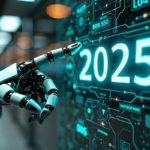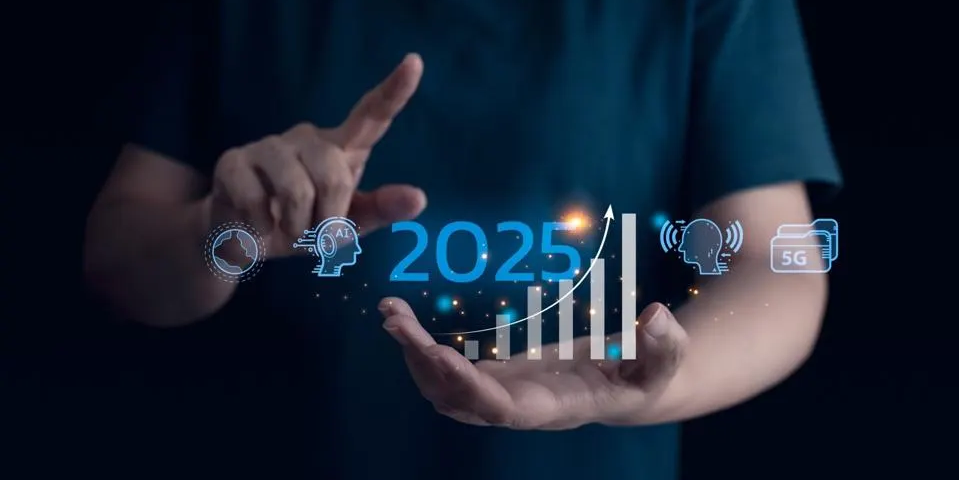
The Cost of Ignoring PDPA: Fines, Reputation, and Customer Loss
December 26, 2024
AI Marketing in 2025: Unlocking Hyper-Targeted Campaigns for Maximum ROI
December 27, 2024In the rapidly evolving digital landscape, small businesses are often caught in a race to remain competitive against larger, well-funded corporations. With limited resources and smaller teams, their ability to scale and attract customers can be hindered. However, the emergence of Artificial Intelligence (AI) in marketing is leveling the playing field. AI is no longer just a tool for Fortune 500 companies; it’s becoming a cornerstone of innovation, offering small businesses the opportunity to achieve personalized marketing, data-driven decisions, and operational efficiency at a scale never imagined before.
As we approach 2025, the integration of AI-driven marketing strategies will empower small businesses to grow faster, smarter, and more sustainably. From automating repetitive tasks to predicting customer behavior and fostering meaningful connections, AI is transforming how small businesses operate and connect with their audience. In this blog, we’ll dive into the numerous ways AI will revolutionize small business strategies, empowering them to thrive in an increasingly competitive marketplace.
Why AI Is a Game-Changer for Small Businesses
Small businesses often face significant challenges, such as:
- Limited marketing budgets that restrict their ability to reach larger audiences.
- Smaller teams, which makes it difficult to execute large-scale campaigns.
- Time constraints, as business owners juggle multiple responsibilities.
AI marketing addresses these pain points by automating time-consuming processes, offering data-driven insights, and creating highly targeted campaigns that maximize ROI (Return on Investment).
In 2025, advancements in AI technology will make these tools more affordable, accessible, and scalable for small businesses. This democratization of AI will enable even the smallest companies to compete with larger players, enhancing customer experiences, streamlining operations, and increasing profitability.
1. Personalization: The Key to Customer Loyalty
Personalization has long been a powerful marketing tool, and with AI, it’s about to become even more sophisticated. Small businesses can leverage AI to deliver experiences that are uniquely tailored to each customer, fostering loyalty and boosting sales.
How AI Will Revolutionize Personalization in 2025
- Real-Time Recommendations: AI can analyze customer behavior in real time to suggest products, services, or content that aligns with their preferences.
- Customized Email Campaigns: AI will craft highly personalized emails based on individual customer profiles, increasing open rates and engagement.
- Hyper-Targeted Ads: Using AI algorithms, small businesses can run ads that target niche audiences with pinpoint accuracy, ensuring every marketing dollar is well-spent.
For instance, a small online bookstore could use AI to recommend titles based on a customer’s previous purchases, browsing history, and even the books they’ve reviewed positively. This level of personalization enhances the shopping experience, driving both sales and customer loyalty.
2. Predictive Analytics: Anticipating Customer Needs
Imagine knowing what your customers want before they do. That’s the power of predictive analytics, a feature of AI that uses historical data to forecast future behavior. In 2025, this capability will become essential for small businesses looking to stay one step ahead of the competition.
Key Benefits of Predictive Analytics
- Optimized Inventory Management: AI can predict which products are likely to be in demand, helping businesses stock efficiently and avoid losses.
- Enhanced Customer Retention: By identifying patterns that signal customer churn, businesses can proactively engage with at-risk customers and win them back.
- Data-Driven Marketing: AI provides actionable insights that help businesses create campaigns with higher conversion rates.
For example, a small coffee shop could use predictive analytics to determine which seasonal flavors are likely to be popular based on past trends, weather conditions, and local events, ensuring they’re prepared to meet customer demand.

3. Marketing Automation: Saving Time and Effort
Small business owners often wear multiple hats, leaving little time to focus on strategic marketing. In 2025, AI-powered marketing automation will take over repetitive tasks, freeing up valuable time and ensuring consistent customer engagement.
Automation in Action
- Social Media Scheduling: AI tools can automatically schedule and optimize posts across platforms, analyzing the best times to reach your audience.
- Content Creation: AI can generate high-quality content, such as blog posts, social media captions, and email templates, tailored to your brand’s voice.
- Campaign Optimization: AI will monitor the performance of marketing campaigns in real time and make adjustments to maximize effectiveness.
For example, a local bakery could automate its social media posts for the week, ensuring that updates about promotions, new items, and customer testimonials are consistently shared without manual effort.
4. Building Emotional Connections with Customers
While AI is often associated with data and automation, it’s also playing a significant role in fostering emotional connections between businesses and their customers. By analyzing sentiment, preferences, and interactions, AI helps businesses create marketing strategies that resonate on a deeper level.
How AI Enhances Emotional Marketing
- Sentiment Analysis: AI tools can gauge customer emotions in reviews, social media comments, and surveys, allowing businesses to respond thoughtfully and improve their messaging.
- Interactive Experiences: AI-driven technologies, such as augmented reality (AR) and personalized video messages, create memorable customer interactions.
- Empathetic Chatbots: AI chatbots with emotional intelligence can provide more meaningful support, addressing customer concerns with care and understanding.
For example, a boutique clothing store could use AI to analyze customer reviews and identify common complaints or praises, allowing them to refine their offerings and improve customer satisfaction.
5. Lowering Costs and Increasing ROI
For small businesses, every dollar counts. AI marketing not only enhances efficiency but also helps businesses achieve a higher return on investment. By targeting the right audience, optimizing campaigns, and reducing wasted resources, AI ensures that marketing budgets are used effectively.
Cost-Effective AI Solutions
- Programmatic Advertising: AI can automate the purchase of digital ads, ensuring they reach the right audience at the lowest cost.
- Customer Segmentation: By dividing customers into specific groups based on behavior and preferences, AI helps businesses create more targeted and cost-effective campaigns.
- Energy and Resource Savings: AI streamlines operations, reducing the need for large teams or extensive manual efforts.
For instance, a small fitness studio could use AI to run hyper-targeted Facebook ads for local audiences interested in wellness, maximizing the impact of their limited marketing budget.

6. Accessible Advanced Technology
In the past, AI was seen as a luxury reserved for large corporations with substantial resources. However, in 2025, AI tools will become more accessible than ever, with many platforms offering affordable and user-friendly solutions tailored to small businesses.
What This Means for Small Businesses
- No Technical Expertise Required: Low-code or no-code AI platforms will allow business owners to implement advanced marketing strategies without needing a tech background.
- Scalable Solutions: As businesses grow, AI tools will adapt to their changing needs, providing a scalable foundation for long-term success.
- Cloud-Based Access: Many AI marketing tools will operate on the cloud, enabling small businesses to access powerful features without investing in expensive hardware.
This accessibility ensures that small businesses can compete on a level playing field, using the same tools as their larger competitors to deliver exceptional results.
Conclusion: The Future Is Bright for Small Businesses
As we move into 2025, AI marketing is no longer a futuristic concept—it’s a present-day reality that is transforming how small businesses operate and compete. From enhancing customer experiences to automating tasks, improving decision-making, and building emotional connections, AI offers an unparalleled opportunity for small businesses to thrive in the digital age.
The revolution is here, and those who embrace AI marketing will unlock new possibilities for growth, efficiency, and customer satisfaction. Don’t wait for the future—start exploring AI tools today and prepare your small business to shine in 2025 and beyond.


